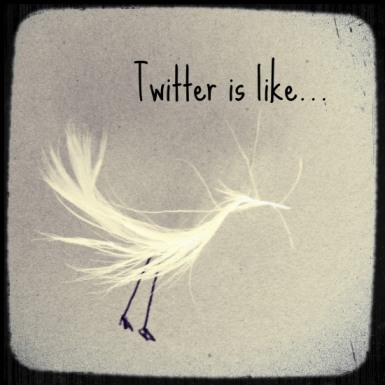Chapter 1 Quiz—Communication Skills as Career Filters
MULTIPLE CHOICE
1. Communication skills
|
are not as important as technical skills for career success. |
|
|
are not necessary in today’s competitive job market. |
|
|
©. |
are ranked by recruiters at the top of qualities they most desire in job seekers. |
|
cannot be learned; they are innate. |
Studies confirm that recruiters rank communication skills at the top of qualities they most desire in job seekers. Your ability to communicate will make you marketable and continue to be your ticket to success regardless of the current economic climate. The good news is that effective communication can be learned.
2. Which of the following statements is most accurate?
|
Because today’s workers are more geographically dispersed, the need for well-written messages has declined. |
|
|
Employers rank oral and written communication skills as less valuable than hard skills such as mathematical computation, computer literacy, and troubleshooting. |
|
|
©. |
Communication skills are critical to your job placement, performance, career advancement, and organizational success. |
|
Business letters and interoffice memoranda remain the top forms of business correspondence. |
3. On the job you are more likely to be taken seriously and promoted if you
|
(a). |
look and sound professional. |
|
frame your degree or certificate and hang it on your office or cubicle wall. |
|
|
appear to be busy even when you’re not really doing anything. |
|
|
attend office parties. |
4. Which of the following statements is most accurate?
|
Workers today communicate less than in previous years. |
|
|
Technology has not affected how and why we communicate. |
|
|
©. |
Businesses today generate a wide range of messages in a variety of media. |
|
Writing is a skill set used only by managers and corporate executives. |
5. Major trends in today’s dynamic world of work include increased emphasis on self-directed work groups and virtual teams, heightened global competition, innovative communication technologies, new work environments, and focus on
|
(a). |
creating an entirely online presence. |
|
promoting from within. |
|
|
restructuring and downsizing. |
|
|
business ethics. |
6. Which of the following statements about today’s business environments is most accurate?
|
The number of telecommuting employees is expected to decline in the future. |
|
|
All companies assign offices for employees. |
|
|
©. |
Many employees today no longer need an office; they can work anytime and anywhere. |
|
Workers today spend more time in offices than workers in the past. |
7. Which of the following statements is correct?
|
Ethics is a priority for many businesses. |
|
|
Because of economic concerns, American companies are relying on local markets. |
|
|
Most companies encourage workers to work independently. |
|
|
(d). |
Today’s businesses are expanding their hierarchies to meet the demands of their workers and their competition. |
8. Communication is defined as “the transmission of information and meaning from one individual or group to another.” The crucial element of this definition is
|
(a). |
|
9. Converting ideas into words or gestures to convey meaning is called
|
(d). |
nonverbal communication. |
10. The communication process begins when the sender
|
determines the appropriate communication channel. |
|
|
has an idea. |
|
|
©. |
encodes an idea into a message. |
|
plans for feedback. |
11. Translating the message from its symbol form into meaning involves
|
(b). |
|
|
nonverbal communication. |
12. Which of the following statements about feedback is most accurate?
|
(a). |
Feedback is the verbal response from the receiver. |
|
Senders should provide as much information as they can to their receivers to show their intellectual capabilities. |
|
|
Paraphrasing a speaker’s message is a waste of time. |
|
|
Feedback can include both nonverbal and verbal responses. |
13. The medium over which the message is transmitted is the
|
context of the message. |
|
|
encoding process. |
|
|
©. |
communication channel. |
|
decoding process. |
14. Communication noise
|
includes anything that disrupts the transmission of a message. |
|
|
is also called feedback. |
|
|
©. |
describes only externally produced sounds. |
|
occurs only during the encoding process. |
15. Many of us are poor listeners because
|
the brain can process information at least three times as fast as people talk. |
|
|
we tend to “tune out” speakers whose ideas run counter to our own. |
|
|
we would rather talk than listen. |
|
|
(d). |
All answer choices are correct. |
16. According to research, what percentage of our work time is spent listening?
|
(a). |
50 percent |
|
90 percent |
|
|
10 percent |
|
|
25 percent |
17. Which of the following statements is most accurate?
|
Very few management problems are related to listening. |
|
|
(b). |
The average person remembers nearly three quarters of what he or she hears following a10-minute presentation. |
|
We misinterpret, misunderstand, or change very little of what we hear. |
|
|
Most people are not very good listeners. |
18. Approximately how many words per minute do most North Americans speak?
|
375 |
|
|
500 |
|
|
250 |
|
|
(d). |
125 |
19. Peter must inform his employees that his company will need to let go of employees. Which word would be best for Peter to use when conveying this idea to his employees?
|
(a). |
Layoff |
|
Streamlining |
|
|
Downsizing |
|
|
Rightsizing |
- You can improve your listening skills if you follow tips for active listening, including
|
(a). |
keeping an open mind, establishing a receptive mind-set, and listening between the lines. |
|
establishing a receptive mind-set, concentrating on appearance and delivery, and sifting information through biases. |
|
|
capitalizing on lag time, concentrating on your next comment, and taking as many notes as possible. |
|
|
asking questions immediately, focusing on the speaker’s face, and concentrating on the details presented in the message. |
21. Your boss is giving instructions for a new method of keeping expense accounts. However, you find it difficult to concentrate because you think the change is unnecessary. What type of barrier to effective listening are you experiencing?
|
Language problem barrier |
|
|
Psychological barrier |
|
|
Physical barrier |
|
|
(d). |
Nonverbal distraction barrier |
22. A listener who nods her head and maintains eye contact with a speaker is probably
|
listening actively to what the speaker is saying. |
|
|
(b). |
not understanding what the speaker is saying. |
|
faking attention while she listens to music on her MP3 player. |
|
|
formulating her response to a point with which she disagrees. |
23. Brian is attending a seminar on workplace efficiency and must make a presentation on this topic when he returns to work. Brian can increase his comprehension by keeping an open mind, listening for main points, taking selective notes, and
|
closing his eyes. |
|
|
speaking up immediately when he has a question or does not agree with the speaker. |
|
|
filling in the lag time by mentally reviewing other tasks he must do that day. |
|
|
(d). |
judging ideas, not appearances. |
24. Amelia has made a conscious effort to become an active listener. Therefore, she shuts down her computer, turns off her cell phone, and asks her assistant to hold all incoming calls when she conducts interviews. What technique is she using to improve listening?
|
Keeping an open mind |
|
|
Establishing a receptive mind-set |
|
|
Capitalizing on lag time |
|
|
(d). |
Controlling her surroundings |
25. Which of the following statements about nonverbal communication is most accurate?
|
Nonverbal communication comprises approximately 10 percent of a message. |
|
|
When verbal and nonverbal messages contradict, receivers believe that the verbal message is more accurate. |
|
|
©. |
Meanings of nonverbal behaviors are often influenced by one’s culture. |
|
Nonverbal communication applies to only intended messages. |

